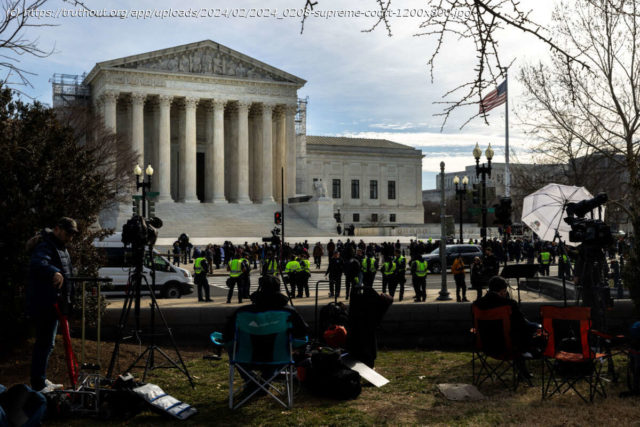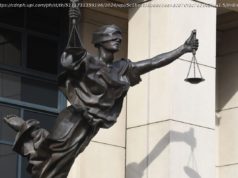Why [should] a single state decide who gets to be president?” Justice Elena Kagan asked at one point.
U.S. Supreme Court justices have expressed skepticism over Colorado’s recent decision to bar former President Donald Trump from the ballot, with some claiming that the precedent could allow for an unmanageable situation in the future.
The Colorado state Supreme Court deemed Trump, currently the frontrunner for the Republican Party nomination for president, an insurrectionist in December, due to his involvement in the January 6, 2021, attack on the U.S. Capitol. That court subsequently ordered him to be barred from the state ballot in the 2024 race due to Section 3 of the 14th Amendment, which disallows former government officeholders who have pledged to uphold the Constitution but who engage in insurrection from being able to hold office again, unless Congress removes that condition by a two-thirds vote.
Justices of the U.S. Supreme Court questioned lawyers from both sides of the issue — Jonathan Mitchell, who represented Trump, and Jason Murray, a lawyer representing the Colorado voters who originally brought the complaint against Trump’s eligibility to be president again. Notably, the justices didn’t spend much time on the question of whether Trump engaged in an insurrection, but rather focused on how the provisions of the 14th Amendment should be applied and which political entity (namely the states or Congress) could actually deem a person in violation of the insurrection clause.
While both sides struggled with answering some of the questions from justices regarding their arguments, members of the High Court appeared uneasy with allowing the Colorado Supreme Court ruling to stand.
Justices were dismissive of arguments from Mitchell that Trump, when he was president during January 6, wasn’t technically an “officer” of the United States. Section 3 of the 14th Amendment specifically states that it applies to former members of Congress, former members of state legislatures, former executive or judicial officers of states, or a former “officer of the United States,” but doesn’t explicitly include the president in its wording — an omission that Mitchell claimed excludes Trump from being deemed an insurrectionist.






